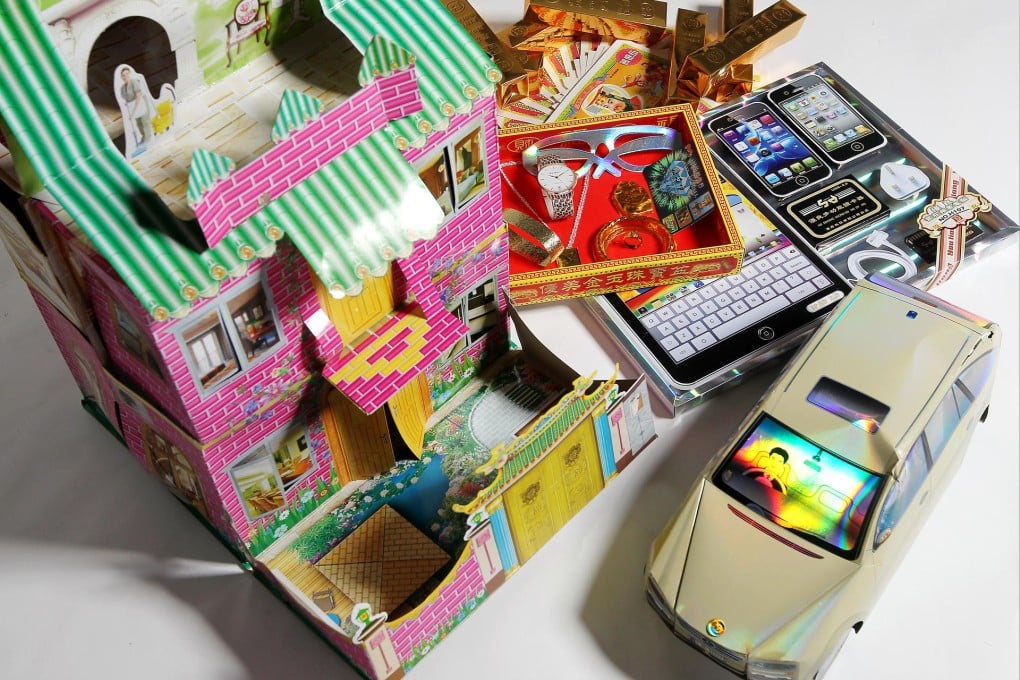Cashes to ashes
Consumerism and brand fixation have infiltrated the underworld. Hong Kong's ghosts are a rich lot, many of them with their own fleet of luxury cars, iPhones and houses with servants to keep their bullion dust-free, discovers Tiffany Ap

Hong Kong is one of the world's most expensive cities in which to live. But it's a bargain to exist in its underworld if the array of joss paper offerings at the cluster of paper-goods shops on Queen's Road West is anything to go by. A colourful stack of HK$500 million in banknotes sells for HK$2, while eight bars of replica gold bullion costs just HK$10. Does your ancestor need a bit of jade jewellery, a watch, or a credit card? That'll be HK$18 please.
Hell money, also sometimes referred to as ghost money, is burned as offerings to ancestors every year during the lunar calendar ghost month, which ended on September 4. The long-held tradition in Chinese culture sees devotees buy joss paper replicas for just about everything imaginable, from renditions of food, such as roast chicken, to daily necessities, such as toothpaste and shirts. These items are all needed for spirits to live comfortably in the afterlife, so the belief goes.
The product selection hardly stops at the mundane. The stores do their best to keep up with modern technology trends; an iPad and not one but two iPhones, can be had for HK$48. There's a version of a Vertu phone - the real handset starts in the tens of thousands - and also Gucci logo shoes and purses, Louis Vuitton wallets, luxury cars, gold watches and more.
The son of one shop owner surnamed Tsang said, "The iPads and iPhones are some of our best sellers. Usually people want to buy Apple products for their deceased. Sometimes they ask for the Samsung S4 but we don't have that yet."
It's a striking statement about contemporary Chinese culture, where dashes of consumerism and brand fixation have infiltrated some of the most ancient and dearly held traditions.
The fact does not always sit well with the mainland's cultural overseers. After discovering people were burning paper offerings of Viagra, mistresses, and even paper versions of celebrities such as the contestants on Super Girl - an American Idol-style singing competition broadcast on the mainland - the government issued an edict in 2006 to stop extravagant offerings.